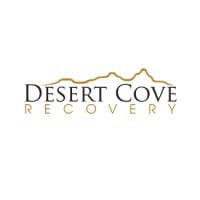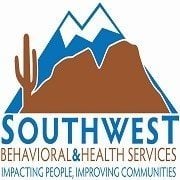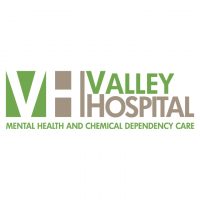Crisis Preparation and Recovery
Drug Rehab Center in Scottsdale, Arizona
- Opioid Addiction
- Dual Diagnosis
- Alcoholism
CPR is an addiction treatment center located in Scottsdale, Arizona offering comprehensive and compassionate care through various therapies and treatments including CBT, Family Therapy, Group Therapy, Trauma Therapy, Couples Therapy, and Individual Therapy with the goal of helping patients on their path to long-term recovery.
About This Arizona Facility
Crisis Preparation and Recovery (CPR) is an addiction treatment center located in Scottsdale, Arizona, offering individualized care for those struggling with Alcoholism, Opioid Addiction, and Dual Diagnosis (Co-Occuring Disorders). They provide a wide range of levels of care, including Detox, Dual-Diagnosis, and Outpatient Treatment Programs. Their goal is to provide comprehensive and compassionate care, and help patients on their journey to long-term recovery.
CPR offers many different therapies and treatments, including Cognitive Behavioral Therapy (CBT), Family Therapy, Group Therapy, Trauma Therapy, Couples Therapy, and Individual Therapy. This allows their staff to identify the complexities of addiction and find the best approach to treatment. CPR also accepts Private Health Insurance to ensure that financial obligations do not stand in the way of a patient’s recovery journey. Their staff is highly dedicated to providing quality services and support to help each individual on their road to recovery.
Genders
Ages
Modality
Additional
Conditions and Issues Treated
Opioid addiction is the result of repeated use, or abuse, of opioid drugs. It is recommended for people who are dependent on opioids, or who have a high risk for dangerous health concerns, to seek professional treatment. Treatment plans usually include behavioral therapy and medication-assisted treatment.
Opioid drugs include: fentanyl, heroin, methadone, oxycodone, and oxymorphone.
Opioid addiction treatment is beneficial for:
- People who have a history of severe withdrawal.
- People with a high risk for dangerous health concerns.
- People having difficulty overcoming opioid addiction on their own.
There are different kinds of Dual Diagnosis:. A person who simultaneously experiences both a mental illness and an addiction disorder. Or, a person who experiences one or more coexisting (simultaneous) mental health conditions in addition to a primary substance use disorder.
The treatment requires a multi-disciplinary approach, it’s crucial for individuals to partner up with a healthcare provider who understands all the recovery components.
Levels of Care Offered at Crisis Preparation and Recovery
This center offers a variety of custom treatment tailored to individual recovery. Currently available are Detox, Dual-Diagnosis, Outpatient, with additional therapies available as listed below.
Detox is the stage of recovery where the drugs or alcohol are entirely removed from your body. There are two different ways to detox, with medications and without. For many drugs and alcohol, the acute phase of detox can be completed in a number of days.
The outpatient programs in Scottsdale, AZ are for those addicted drugs or alcohol. The goal of the outpatient rehabilitation program is to make them stop abusing drugs or alcohol, reduce drug use or addictive behaviors, and become entirely sober. It is generally required to attend the outpatient program for 10-12 hours every week.
Patients can be administered on-the-spot medication to ease withdrawal symptoms such as anxiety, increased heart rate, and even depression. Groups such as Alcoholics Anonymous (AA) and Narcotics Anonymous (NA) can be used as a part of outpatient treatment to help maintain sobriety.
Therapies & Programs
People in addiction recovery can benefit from individual therapy. This type of therapy involves meeting with a therapist one-on-one. This allows for a personal and trusting relationship to be built so that the patient can be truly themselves and express any emotions they feel. Individual therapy leads to greater understanding and peace about your triggers for addiction and coping strategies to prevent relapse.
Couples therapy for drug addiction is based on the belief that addiction is a family disease. Everyone involved with an addict, not just the addict themselves, is affected by their behavior and the changes the addict goes through. The relationship also changes the addict’s significant other and has likely picked up some codependent behaviors. Codependency is a term used to describe a person obsessed with another person and their needs and feelings while neglecting their own. Addicts are usually people-pleasers, so it is understandable how one can become codependent in relationships with addicts.
Family therapy is a type of group problem-solving that aims to improve communication and relationships between the patient, their family, and sometimes friends. The main goal of family therapy for drug addiction is to create an environment where communication can occur without judgment, hostility, or blame. The therapist is with the family as they learn to communicate with each other differently, especially with the addict when s/he is using.
Group therapy sessions are held in rehab facilities, clinics, churches or community centers that offer drug addiction treatment. People who attend these groups are encouraged to voice their feelings and support other addicts in recovery. This helps group members strengthen their own recovery program while cheering on others who are struggling with sobriety.
Group therapy sessions provide recovering addicts with a chance to cope with everyday situations that many face. Group therapy sessions are held in rehab facilities, clinics, churches or community centers that offer drug addiction treatment.
People who attend these groups are encouraged to voice their feelings and support other addicts in recovery. This helps group members strengthen their own recovery program while cheering on others who are struggling with sobriety.
If you’re looking for addiction treatment, it’s important to find a facility that offers trauma therapy. This type of therapy helps people process and understand the past traumas that have led to their addiction. Trauma therapists will work with clients to help them understand their past and present relationships and show them that they are worthy of love. This therapy is typically done using visualization, discussion, and writing down thoughts and feelings.
Trauma Therapy is a form of therapy that involves working with a patient to help them process and understand the past trauma(s) in their life. This therapy is typically done using techniques such as visualization, discussion, and writing down thoughts and feelings. The main goals of trauma therapy is to help clients express their emotions and talk about what they are feeling.
Cognitive Behavioral Therapy (CBT) helps addicts identify faulty, negative thinking so that they can work together with the therapist to find healthier ways of thinking. CBT focuses on specific aspects of each person’s thinking, feeling, physiology, and behavior. It aims to identify specific problems in these areas, and create a personalized treatment strategy.
Payment Options Accepted
For specific insurance or payment methods please contact us.
Is your insurance accepted?
Ask an expert, call (888) 674-0062
Additional Details
Specifics, location, and helpful extra information.
Scottsdale, Arizona 85251 Phone Number(480) 804-0326 Meta DetailsUpdated November 25, 2023
Staff Verified
Patient Reviews
There are no reviews yet. Be the first one to write one.
Scottsdale, Arizona Addiction Information
Arizona has some of the highest rates of prescription drug abuse in the United States. Methamphetamines, heroin and morphine are among the most commonly abused substances. Prescription pain relievers were prescribed to 348 million people in 2012, enough to medicate every adult in Arizona for 2 full weeks. The number of people with substance use disorders in Arizona has remained relatively constant over the past few years.
Scottsdale, Arizona, has seen a rise in the number of people addicted to illicit drugs. In 2018, there were nearly 1,000 reported drug abuse cases, an increase of 30% from 2017. Nearly 2% of Scottsdale residents admit to using drugs regularly. Commonly abused drugs include cocaine, heroin, and prescription opioids. The best way to find a treatment facility in Scottsdale is to ask for referrals from those who have been through treatment.
Treatment in Nearby Cities
- Marana, AZ (82.8 mi.)
- Flagstaff, AZ (119.4 mi.)
- Maricopa, AZ (30.6 mi.)
- Ganado, AZ (204.6 mi.)
- Show Low, AZ (120.3 mi.)
Centers near Crisis Preparation and Recovery
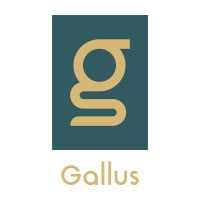
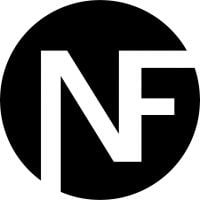

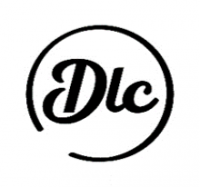
The facility name, logo and brand are the property and registered trademarks of Crisis Preparation and Recovery, and are being used for identification and informational purposes only. Use of these names, logos and brands shall not imply endorsement. RehabNow.org is not affiliated with or sponsored by Crisis Preparation and Recovery.

